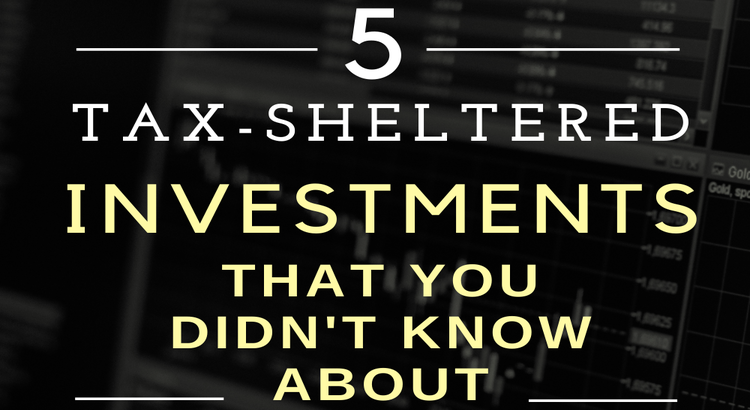Updated/Rewritten: 10/26/20
Most personal investors aren’t aware that they could own real estate in an IRA, HSA and even some 401Ks. Not just the ability to access real estate through REITS, you can actually hold tangible rental real estate in retirement accounts. Though typically riskier (and demanding more time and expertise) than a broadly diversified mutual fund portfolio, owning rental properties, private equity, or even a business within your retirement accounts is a secret that wealthy investors have known about for years and that has the potential to significantly increase investment returns, if you know what you’re doing.
The major benefit of holding alternative assets in a retirement account is
that the tax can be deferred (traditional IRAs etc.) and used to reduce current-year taxable income. Or, in the case of a Roth IRA, the asset can be funded with post-tax dollars and receive tax-free withdrawals. However, because these investments are tax-advantaged, investors cannot access the returns until retirement age (59.5+), unless they take early distributions. Nor can they fund these investments with anything but cash that is already available in the retirement account. For instance, if an IRA-held property needs repairs, they must be paid for with IRA cash, never out-of-pocket by the IRA holder (you).
Alternative investments are also typically riskier, not just because you usually need a higher level of expertise, but also because the IRS has not clearly outlined the tax law in all scenarios. Some alternative investment structures are still in a legal gray area, such as aspects of IRA-held LLCs. What has been clearly established is that your IRA cannot engage in any transaction that would directly benefit you (as an individual), or any prohibited person. Despite the fact that everything your IRA invests in eventually benefits you in retirement, the IRS does not want investors to bypass the rules surrounding distributions.
I work in an investment firm that specializes in self-directed/alternative investing. I have witnessed more than a couple savvy investors earn huge returns from alternative investments. I’ve seen other investors lose everything to fraudulent private equity deals. Like with most pursuits, the more diligent you are and the more expertise you bring to your investments the better chances you have of being successful.
1. Real Estate
Most real estate investors I speak to aren’t aware that they can own rental properties within their retirement accounts. However, so long as the rules are followed and the IRA custodian allows for it (you will need a specialized IRA custodian dealing with “self directed” investment accounts), holding real estate in an IRA can be an phenomenal way to preserve your capital while collecting rents.
General Guidelines for Holding Real Estate in your IRA:
- Choose a custodian that allows your self directed IRA to hold real estate
- Avoid prohibited transactions as defined by the IRS, like using personal funds (non IRA) or sweat equity to improve the property.
- Avoid transactions with any disqualified person, such as a parent, spouse or child (siblings are not disqualified people for whatever reason.)
- All rental income, sales profit and expenses must flow back to the IRA
- The property must either be purchased in full or leveraged through a non-recourse loan. That is, you cannot be held personally liable in the case of a default because your IRA is a separate legal entity and your personal involvement would be characterized as self-dealing.
If you are already a confident real estate investor you can hold rental properties within your IRA and avoid paying income tax on the rental income. If your property is leveraged, you will be responsible for a separate tax, referred to as UBIT (Unrelated Business Income Tax), which I will cover in depth in an article dedicated to IRA real estate.
2. Private Equity / Private Placements In an IRA
Well-vetted PE investments often yield much higher returns than mutual funds, especially broadly diversified funds. The more diversified an investment portfolio is, the more likely it is to yield the total market’s average return. However, with the greater rewards of private placements, the inherent risk also increases significantly.
Because PE investors typically rely on the performance of a single company/asset or small group of holdings, they must be willing to complete extensive due diligence when evaluating private equity investments. The other barrier to entry for most private equity / private placement investments is that the investor must be accredited and have a high net worth or high income, to qualify for many of the deals.
3. Precious Metals: Gold, Silver and Palladium
Don’t want to own a gold fund or to bury your treasure? You can have your self directed IRA hold your gold, silver, platinum and palladium for you. However, you will need a qualified IRA custodian, a precious metals broker and a depository and the more people you put between you and your investment the tighter your profit margin becomes.
Further, not all precious metals are allowed in a self directed IRA. The IRS determines the level of purity as well as the acceptable forms of precious metals you can hold. Your coin collection, even if certified or “graded”, is not allowed in an IRA. In fact, the IRS specifically disallows any type of collection in retirement accounts. You can, however, own Hawaiian Koa trees and cattle, among other unusual investments.
4. Secured & Unsecured Notes
With the right custodian handling your account, your retirement account can also lend funds to a non-disqualified person or business entity. You or your attorney would write up the loan paperwork, choose whether or not you want it secured by property, determine a fair interest rate and then instruct your self directed account administrator / IRA custodian to use your IRA funds for lending.
However, your IRA custodian will most likely not be giving you advice or aiding you with any legal paperwork. For a note to be profitable they have to be structured intelligently and underwriting a note is not easy. For the record, I don’t know why anyone would use their IRA for an unsecured note. Your IRA has no recourse so you should have a very good reason to lend without some type of security (i.e. a high interest rate with reputable company).
5. Your Own Business
Referred to by many names- the Closely Held LLC, the Checkbook IRA, the IRA-LLC- owning a business within a retirement account is often used to facilitate making payments for your alternative investments. Though you cannot bring a previously formed business under the umbrella of your IRA, you can form a new company within your IRA (again, you need a self-directed IRA custodian or trust company that handles alternative assets) and then use a business bank account to receive rent or note checks and pay out expenses. This option can be attractive for investors with multiple rental properties because self directed IRA custodian cannot process payments as quickly or conveniently and the paperwork can become cumbersome.
The danger here is that the IRS has not provided clear-cut rules regarding these entities and you may be at greater risk for audit.
Some tips for closely held LLCs:
- Secure an attorney’s opinion letter stating that the business is structured in a way that is not prohibited by the IRS
- Title everything in the name of the IRA
- Review recent US Tax Court cases related to closely held LLCs
- Keep an arms-length/ do not take personal compensation from your LLC in any form
Following these guidelines may put you in a better position if an audit is conducted. Anyone interested informing an LLC within an IRA should consult with an attorney who is familiar with this niche, as well as a qualified tax professional.
Were you aware you could own real estate in an IRA?


